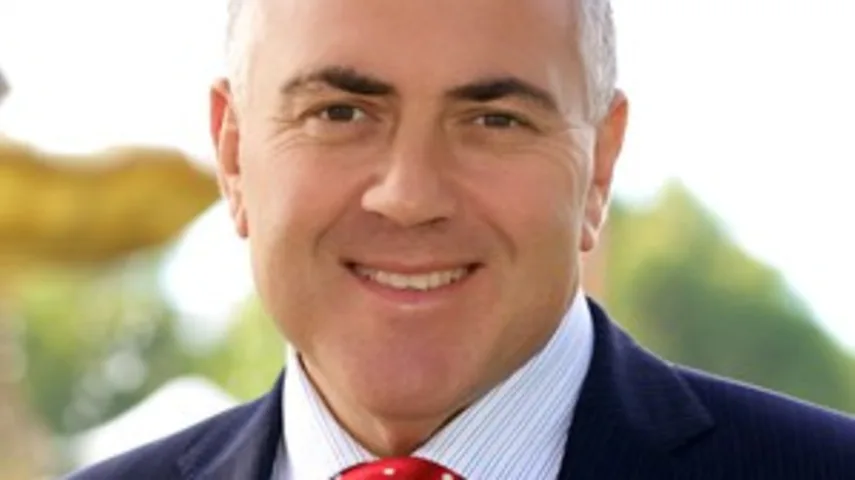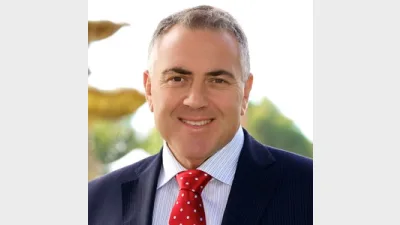Biggest event of 2013 - Son of Wallis



2013 was another eventful year for the financial services industry. In its annual top 5 feature, Money Management looks at some of the most memorable moments of the last 12 months.
- Biggest events of 2013
- Top 5 wins
- Top 5 fails
- Top 5 moves of 2013
- Top 5 policy issues
- Top 5 acquisitions of 2013
Son of Wallis
The Coalition signaled early that one of its first priorities if it won Government at the 2013 Federal Election would be “Son of Wallis” – essentially an update of the Financial Sector Review chaired by Stan Wallis more than a decade earlier.
The Federal Treasurer, Joe Hockey, delivered on that promise in late November when he released the draft terms of reference for the Financial Sector Review and confirmed that it would be chaired by David Murray.
The original Wallis Inquiry was seen as forming the foundations for the Financial Services Reform Act and, importantly for the financial services industry, the draft terms of reference for “Son of Wallis” point to the review traversing not only financial planning but also superannuation and the role of the regulators.
“Son of Wallis” and how the inquiry evolves is now regarded as being a focal point for the industry in 2014. It is scheduled to report back to the Treasurer with its recommendations in November.
Change of Government
Year 2013 was an exciting year for the Australian political landscape, what with the early call of the election and Kevin Rudd’s return to Prime Ministership.
The 7 September election ended in a massive win for the Coalition, with the financial services industry breathing a sigh of relief at the prospect of some of the most disliked legislation being amended.
Former Shadow Minister for Financial Services Mathias Cormann received the Finance portfolio, but the new Treasurer Joe Hockey and Assistant Treasurer, Senator Arthur Sinodinos, were quick to reaffirm the Coalition’s commitment to the 16 amendments to the Future of Financial Advice legislation it promised to deliver before the election.
Most recently, the new Government moved to scrap 92 pieces of announced but unlegislated tax and superannuation measures put forward by the former Labor Government, which was broadly welcomed by the financial services industry.
The sector has also welcomed the Government’s commitment to increase the Superannuation Guarantee still to 12 per cent despite its repeal of the Minerals Resource Rent Tax.
Meanwhile, former Minister for Financial Services and Superannuation Bill Shorten was elected leader of the Labor Party.
Senate’s interest in ASIC performance
One of the most significant events this year was the resurfacing of additional information about the way the Australian Securities and Investments Commission (ASIC) dealt with the 2008 scandal involving CBA-owned advice business Commonwealth Financial Planning (CommFP).
The reports by Fairfax Media earlier this year alleged it took ASIC 16 months to respond to a tip-off about fraudulent activities and bad advice provided by a group of rogue planners working at CommFP at the time.
The release of this information not only put the financial planning industry back into the spotlight but also lead to the Senate launching an inquiry into the performance of ASIC.
Since the announcement of the inquiry, the Senate Standing Committee on Economics has accepted more than 300 submissions, with many industry stakeholders questioning ASIC’s resourcing and its ability to efficiently complete its tasks as a regulator.
ASIC has so far lodged three major submissions to the inquiry, admitting its response to CommFP whistleblowers in 2008 could have been quicker, but also defending itself against allegations regarding resourcing and the efficiency of its staff. The Senate is due to release a report on 30 May, 2014.
ASIC’s surveillance of risk advice
ASIC has quietly watched as the debate around life insurance policy churn unfolded over the last couple of years. The industry had long suspected the regulator had its doubts about the way risk advisers are remunerated.
Sure enough, ASIC deputy chair Peter Kell announced at the Association of Financial Advice Conference that the regulator would be conducting major surveillance of life insurance advice.
The focus of the surveillance operation, according to Kell, will be the quality of risk advice, remuneration models, commission types and the types of policies that are being provided to retail clients.
The purpose of the project on lifting the standards in the industry, but many legal experts believe the regulator has its eye on churn. In May this year, ASIC’s senior executive leader of its financial advisers team, Joanna Bird, confirmed the watchdog would spend the next 12 months focusing intensely on this.
Both ASIC and the Government are expecting the industry to self-regulate on churn.
WealthSure’s close call
WealthSure’s story could have had an abrupt end, given that ASIC’s review of the dealer group identified similar issues to those seen with Adwealth and other groups whose licences were cancelled this year.
The regulator found the business had a so-called ‘lite-touch’ approach to compliance, poor culture and inadequate risk management, which resulted in detrimental outcomes for consumers.
The reason why this is significant is because WealthSure is one of the largest independent (non-bank aligned) dealer groups in the country which, if it hadn’t offered the enforceable undertaking (EU) to ASIC, could have collapsed.
The group’s former chief executive officer Darren Pawski was identified by ASIC as the main culprit, with the regulator saying its investigation “found that Pawski was instrumental in WealthSure’s multiple compliance failures”.
As part of his own EU, he will not be able to manage a financial services business nor make key decisions in any Australian financial services licensee.
But while the financial services industry usually regards EUs as a negative thing, it might be just what WealthSure needed.
The group seems to be turning things around, having implemented robust compliance processes and letting go of close to 100 planners who did not fit the new culture.
Recommended for you
In this episode of Relative Return Insider, host Keith Ford and AMP chief economist Shane Oliver unpack the RBA’s decision to keep the cash rate on hold in the face of rising inflation and whether the governor’s hawkish tone is a sign of things to come.
In this episode of Relative Return Insider, host Keith Ford and AMP chief economist Shane Oliver discuss the September quarter GDP figures, which show Australia’s economy regaining momentum.
In this new episode of The Manager Mix, host Laura Dew speaks to Haley Devine, head of wealth management at MaxCap Group, to delve into private credit and commercial real estate.
In this new episode of The Manager Mix, host Laura Dew speaks to Benjamin Leung, head of systematic investments at Macquarie Asset Management, to understand the use of systematic investments.







